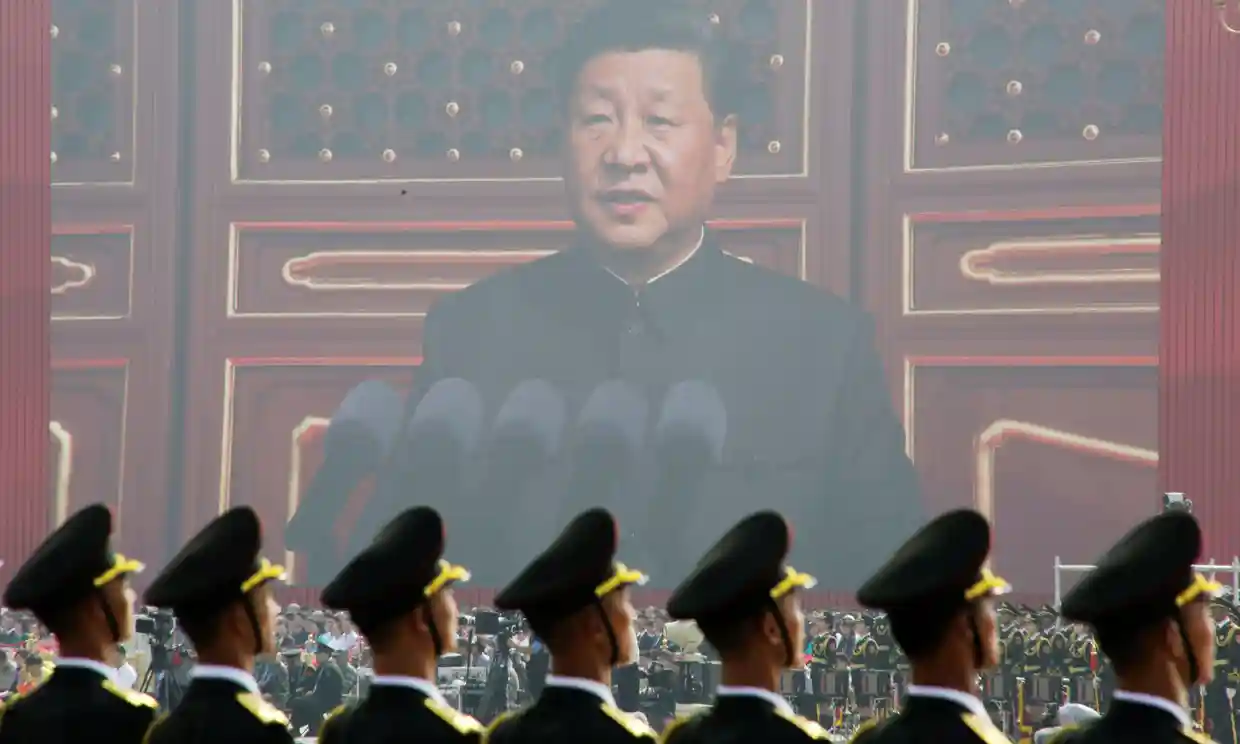Sunak Warns: China Emerges as the Foremost Global Security Concern
UK Prime Minister’s Bold Assessment: Outlining the Unprecedented Challenge Posed by Beijing Beyond G7 Summit
In a striking statement, UK Prime Minister Rishi Sunak has underscored that China represents the foremost challenge to global security and prosperity in our era, possessing both the means and the intent to reshape the existing world order.
Sunak praised the unity and determination demonstrated by G7 leaders, which included nations such as Japan, the United States, Canada, and various European countries, in addressing the multifaceted challenges emanating from Beijing.
While the G7 summit’s joint statement referred to the need for “de-risking” rather than “de-coupling” from China, in order to maintain their relationship, cautioning against an anti-Beijing stance, Sunak went beyond the summit’s official stance. He elaborated on the extent of the threat posed by China, appearing to rank it even higher than Russia in terms of its global security implications.
The Prime Minister’s remarks shed light on the gravity of the concerns surrounding China’s actions and ambitions, emphasizing the imperative for a collective response from the international community to address this complex and evolving challenge effectively.
Rishi Sunak, speaking from the poignant setting of the Hiroshima peace centre, where one of the atomic bombs was dropped by the United States in 1945, emphasized the collective effort of the G7 and other nations to mitigate risks associated with China. Sunak stressed the importance of safeguarding supply chains, countering hostile investment, and protecting each other without causing harm.
The UK Prime Minister was questioned about the G7’s response to the China challenge. While the nations issued a critical statement on Beijing and committed to establishing a new body to counter “economic coercion” by China and other actors, specific measures to address China’s increasingly aggressive stance towards Taiwan were not outlined. The joint statement highlighted the nations’ strong opposition to any unilateral attempts to alter the status quo through force or coercion.
The G7’s actions reflect an acknowledgment of the pressing need to address the multifaceted concerns posed by China, although further steps may be required to effectively respond to specific challenges. Sunak’s remarks from the historic Hiroshima peace center underscore the significance of international collaboration and vigilance in navigating this complex global landscape.
Responding to concerns about the absence of concrete actions, Rishi Sunak expressed disagreement, emphasizing that tangible steps had indeed been taken. He clarified that part of the G7’s response involved acknowledging the systemic challenge posed by China to the existing world order, emphasizing China’s unique position as the only country with both the means and the intent to reshape it.
Furthermore, Sunak revealed that discussions within the G7 encompassed the imperative of safeguarding critical technologies vital to security, ensuring they do not inadvertently reach China. These conversations reflect a proactive approach aimed at mitigating potential risks and vulnerabilities.
By highlighting these aspects, Sunak aimed to underscore the G7’s efforts to address the multifaceted challenges posed by China, recognizing the need for a comprehensive response to protect global security interests.
The G7’s joint statement characterized the relationship with China as a challenge rather than a direct threat. However, it did employ strong language by urging China to refrain from engaging in interference activities while expressing concerns over alleged human rights violations in Tibet and Xinjiang.
Furthermore, the statement highlighted the G7 countries’ grave concerns regarding territorial disputes in the South China Sea and called on Beijing to utilize its influence to encourage Russia’s withdrawal from Ukraine.
In response to the G7’s stance, China expressed its “strong dissatisfaction” and lodged a formal complaint with Japan, the host nation of the summit.
Within the Conservative backbenches, Rishi Sunak faces significant pressure from vocal critics of China, including former leader Iain Duncan Smith. These individuals have been actively urging No 10 to take a firm stance on the issue. Additionally, Liz Truss, the former prime minister, recently visited Taiwan and has called for Sunak to adopt a tougher approach towards Beijing.
The G7’s joint statement and its subsequent repercussions highlight the complex dynamics surrounding China’s global relations, with diverging perspectives and pressures influencing discussions on how best to address the challenges presented by the nation.

